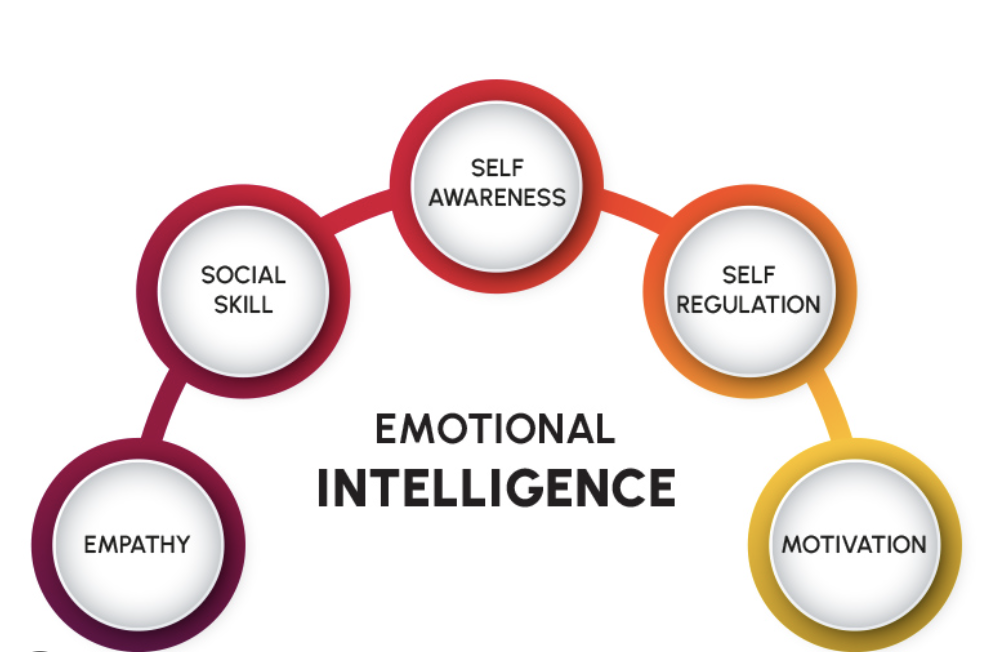The Psychology of MSP Sales: Understanding and Influencing Buyer Behavior

The managed services provider (MSP) landscape is more competitive than ever. With tightened budgets and endless solution options, buyers have become more discerning about their technology investments. To stand out, MSPs must evolve from reactive service providers to trusted advisors who deeply understand their clients’ needs.
This requires moving beyond speeds and feeds to decode the psychology behind buyer decisions. Mastering the ‘soft skills’ of selling is key to gaining a competitive edge.

In this comprehensive guide, we’ll explore the psychology of B2B buying for MSP services and equip you with science-backed techniques to influence buyer behavior.
Decoding the B2B Buying Brain: How Prospects Make Decisions
Understanding the mechanics behind buyers’ decision-making process enables MSP sales teams to align messaging and interactions for maximum impact.
Here are key scientific insights on the B2B buying brain:
Buyers Follow Established Cognitive Patterns
According to noted psychologist Daniel Kahneman’s Nobel prize-winning Prospect Theory, buyers evaluate decisions via established mental shortcuts instead of purely rational calculations.
By identifying these patterns, sales teams can frame information in ways that feel intuitively appealing. For instance, presenting data using percentages instead of absolute numbers has more psychological influence.
Emotions Strongly Influence Choice
Research shows emotions play an equal, if not bigger role than logic in buyer decisions. Yet most sales interactions focus solely on rational benefits.
By evoking the right emotions associated with their offering, like relief from stress or optimism about growth, MSPs make prospects more receptive.
Peer Consensus Drives Decisions
As social creatures, buyers heavily factor in peer experiences and consensus before committing, a phenomenon called social proof.
Thus testimonials, strong branding, and community building establish vital social validation that sways decisions.
Past Anchors Future Decisions
Human behavior exhibits ’consistency bias’ - we stick with familiar experiences to reduce uncertainty.
Leveraging this tendency by demonstrating similarities between past vendor relationships and current offerings increases buyers’ perceived comfort and predictive value.
Match Messaging to Mental Models
Buyers filter sales information through established perspectives called mental models that shape their worldview. Tailoring messaging to align with individual mental models makes assimilation more seamless by reducing cognitive dissonance. Arm your sales team with these science-backed insights on buyer psychology to craft targeted messaging that speeds up sales cycles.
Next, let’s explore key personas within the MSP buyer’s journey to further enhance engagement.
Mapping the MSP Buyer’s Journey
MSP buyers comprise diverse stakeholders across seniority levels and functions, each with unique priorities and challenges. Identifying core personas is vital for sales teams to nurture targeted relationships that influence decisions.
Here’s an overview of key MSP buyer personas and how sales teams can guide them across the purchase process:
Persona 1 - The Operational Buyer
Titles: IT Manager, IT Director, CTO
Drivers: System reliability, efficiency, cost optimization
Priorities: Manage operations and infrastructure, ensure performance
Challenges: Legacy systems, lack of visibility, talent gaps

Sales Guidance:
- Demonstrate understanding of daily firefighting and frustration with current tools
- Provide free site assessment highlighting trouble areas that technology could ease
- Quantify efficiency gains and cost savings from improved system performance
- Detail capabilities to reduce manual efforts and enable proactive monitoring
Persona 2 - The Strategic Buyer
Titles: CIO, VP - IT, Chief Digital Officer
Drivers: Business alignment, technology innovation, growth
Priorities: Strategic roadmaps, new capabilities, training
Challenges: Budget constraints, culture resistance, new skill requirements
Sales Guidance:
- Show direct correlations between KPIs and business growth metrics
- Provide examples of technology transformation in similar industries
- Introduce innovations via executive lunch and learns with Q&A
- Outline change management services and training to ease adoption

Persona 3 - The Compliance Buyer
Titles: CISO, Director - Governance and Compliance, Risk Officer
Drivers: Regulations, data security, risk mitigation
Priorities: Policies, audits, controls, assessments
Challenges: Manual tracking, lack of tools, talent gaps
Sales Guidance:
- Demonstrate deep understanding of complex regulatory burdens
- Provide audit-ready compliance documentation for buyer’s industry
- Highlight automation capabilities for policy tracking
- Quantify risk reduction through advanced controls

Personalize messaging and interactions to address the unique drivers and challenges of each persona for relevance that accelerates decisions.
Now let’s zoom in on their step-by-step journey during an MSP buying cycle.
Stage 1 - Problem Recognition
Buyer Mindset:
“We have some pain points and gaps in our current IT management, but is this really a priority issue warranting investment?”
Sales Guidance:
- Ask incisive questions to uncover true scale, frequency and impacts of problems
- Connect challenges directly to business metrics like lost productivity, downtime costs
- Detail worst case scenarios if existing gaps remain unaddressed
Stage 2 - Information Gathering
Buyer Mindset:
“What options are available to address this issue? What do my peers use?”
Sales Guidance:
- Provide robust content covering product capabilities and client successes
- Arrange peer roundtables for candid sharing on solutions and lessons learned
- Distill industry data and tailor for buyer’s specific use case
Stage 3 - Exploration and Trial
Buyer Mindset:
“Will this technology work for my specific environment? How easy is adoption?”
Sales Guidance:
- Offer personalized demos aligned to individual workflows
- Provide free trials for hands-on experience to build confidence
- Highlight ease of integration with existing systems
Stage 4 - Selection
Buyer Mindset:
“Why should I pick this vendor over alternatives? How do we ensure value?”
Sales Guidance:
- Share detailed ROI projections, TCO comparisons, KPI impact forecasts
- Provide a clear implementation roadmap aligned to business priorities
- Convey post-sale support capabilities to build trust
By mapping messaging to buyer mindsets during each purchasing stage, sales teams can provide personalized guidance that anticipates concerns, answers questions before they’re asked and builds progressive momentum towards closing.
Accelerating MSP Sales Cycles with Science-Backed Communication Strategies
Armed with insights on MSP buyer psychology and journeys, sales teams need targeted communication frameworks to influence decisions.
Here are 5 science-backed tactics to accelerate sales cycle velocity by building quick connections and consensus across stakeholders:
1. Establish Similarity
The similarity principle states that people like and trust those similar to themselves. Sales reps can harness this via:
- Identifying mutual connections, associations or experiences to establish rapport
- Mirroring prospect communication styles and terminology
- Highlighting shared challenges faced and successes achieved
2. Raise Problem Awareness
Buyers underappreciate needs until costs of inaction seem substantial. Strategically elevate awareness by:
- Quantifying productivity loss, revenue decline from existing tools
- Benchmarking KPI declines against industry averages
- Detailing worst case breach, downtime or compliance penalty scenarios
3. Convey Social Proof
Given buyers heavily factor in peer experiences, provide validation via:
- Client testimonials, branded case studies and referral connections
- Industry analyst research conveying broad adoption and benefits
- Awards and credible publications reinforcing reputation

4. Shape Intuitive Decisions
Buyers anchor to existing perspectives. Sales reps can reframe context by:
- Tapping into familiar vendor relationships to smooth transitions
- Using percentages over absolute figures for more intuitive data impact
- Showcasing improvements over current baselines to demonstrate gains
5. Activate Emotional Drivers
Rational data alone rarely compels action. Create urgency and enthusiasm by:
- Igniting frustrations with status quo through relatable anecdotes
- Painting an aspirational vision across operational, strategic and compliance goals
- Highlighting empowered career growth and peer esteem from technology mastery
Integrating these scientifically-proven communication strategies will enable MSP sales teams to influence buyer decisions more effectively and drive faster sales cycle velocity.
Now let’s switch gears to optimizing outbound prospecting, an essential sales engine for MSPs.
Supercharging MSP Lead Generation with Proven Outbound Sales Methodologies
Lead generation is the fuel powering revenue growth. Yet inconsistent pipelines plague even the most seasoned MSP sales teams. By institutionalizing science-backed outbound methodologies, MSPs can fill pipes predictably irrespective of market conditions.
Here are 4 proven lead generation frameworks tailored for MSP sales teams:
1. IDEAL Prospecting Framework
IDEAL offers a structured blueprint for outbound calls to secure meetings:
I - Identify key contacts
D - Develop rapport quickly
E - Educate prospects on needs
A - Advance conversation with tailored solution overview
L - Lock in next step commitment
2. Challenger Sale Methodology
Challenger centers on teaching before selling. Its key tenets:
- Share unique perspectives to reframe thinking
- Tailor teaching to individual knowledge gaps
- Take control of conversations to move buying vision forward
- Promote healthy tensions to motivate change
3. MEDDIC Prospecting Approach
MEDDIC provides an acronym to qualify opportunities:
- Metrics - KPIs impacted
- Economic Buyer - Decision maker details
- Decision Process - Steps and timelines
- Diagnostics - Technical assessments
- Identify Pain - Quantify issues
- Champion - Determine project advocate
4. SPIN Selling Model
SPIN maps out critical selling stages:
- Situation Questions - Uncover scenario
- Problem Questions - Align to pains
- Implication Questions - Surface impacts
- Need-Payoff Questions - Share solution and benefits
While outbound calls often invoke dread, these proven frameworks make conversations more purposeful. Reps can track progression through each methodology’s selling stages rather than feel adrift.
Combined with AI-guided talking points and real-time engagement insights, they structure interactions for sales success.
Cementing Long-Term Loyalty with Value-Based MSP Account Management
For MSPs playing the long game, account management presents big upsell potential from trusted relationships.
Here are 5 ways to continually deliver transformational value that cements client loyalty:
1. Quarterly Business Reviews
QBRs are a good opportunity to uncover any roadblocks the buyer anticipate in the upcoming quarter. Sales teams can preemptively formulate solutions around these insights or align expansion offerings.
2. Executive Advisory Boards
Inviting clients into peer leadership forums fosters a vested interest in long-term partnerships beyond immediate scopes. It also provides a pulse on emerging industry challenges.
3. Marketing Impact Assessments
Connecting technology capabilities to marketing KPIs like lead generation provides hard justification for further investments.
4. Annual Future-State Visioning
Bringing teams together to craft 3-5 year plans based on clients’ growth objectives rather than purely technological considerations better ties spend to strategic business priorities.
5. Hard Benefits Benchmarking
Monitoring and demonstrating improvements in target areas specified by stakeholders conveys tangible rather than theoretical value. Even small optimizations cumulate into substantial benefits over multi-year relationships and justify retention.
The Essential Role of Conversation Intelligence in Boosting MSP Sales Productivity
As customer interactions grow more scattered across channels, sales reps struggle to recall key details that influence deal momentum. Critical context lives across emails, calls and meetings but gets lost in the fray of mounting activities that define modern selling.
This revenue leakage can be plugged with conversation intelligence platforms like Nayak. By automatically recording and transcribing conversations, these AI-powered tools create searchable records that can be referenced on-demand.
But more than just transcription software, conversation intelligence delivers data-driven sales mastery via:
Smart Recommendations - Based on talk track analysis, Nayak provides tailored advice to improve communication effectiveness, from subtly mirroring clients’ speech patterns to stressing certain capabilities.
Conversation Analytics - By detecting sentiment, engagement levels, topics and objections, Nayak uncovers behavioral insights to refine prospect targeting and positioning.
Talk Track Optimizer - Nayak’s algorithms learn effective messaging patterns from top performers and injects these right into rep-prospect discussions to influence outcomes.
Objection Prediction - By detecting verbal and tonal cues, the platform recognizes rising objections and arms reps with counter messaging to preserve deal momentum.
Auto-Logging in CRM - Back-and-forth dialogue, key prospect information, and follow-ups are automatically organized in CRM records to eliminate tedious manual entry.
Conversation intelligence heralds the next stage in sales enablement technology. Let’s hear from MSP sales leader Doug Childress on boosting productivity.
“With Nayak, we are able to hire SDRs with limited technical skills and qualify the same amount of leads as if we had SDRs with full technical skills." - Doug Childress, CEO, Claratti
Ready to implement science-backed techniques for MSP sales success? Nayak empowers reps with conversational intelligence for data-driven mastery that boosts sales velocity, win rates and productivity.















.png)



.jpeg)


.jpg)
.jpg)

.jpg)


























